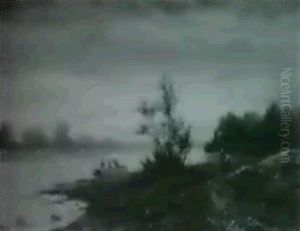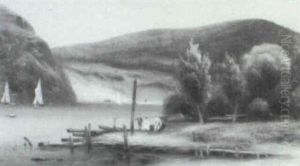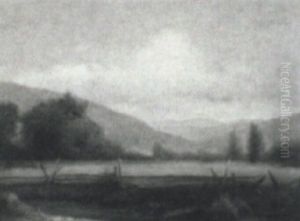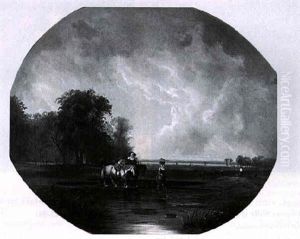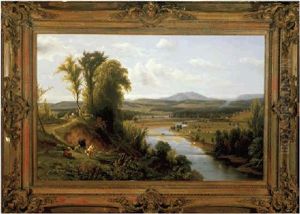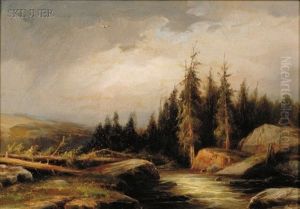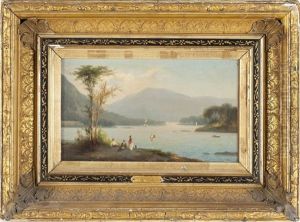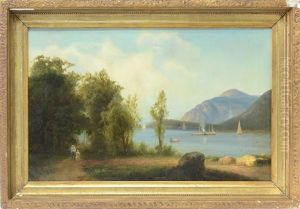Max Eglau Paintings
Max Eglau was a German artist known for his contributions to the field of printmaking, particularly woodcuts. Born in 1912 in Offenbach am Main, Germany, Eglau grew up during a period of significant political and social upheaval. His early life was influenced by the aftermath of World War I and the rise of modernist movements across Europe.
Eglau's artistic career began in an environment rich with the traditions of German printmaking. He was trained in the graphic arts and quickly developed a passion for the medium of woodcutting. This traditional form of printmaking involves carving an image into the surface of a block of wood, with the raised areas then being inked and transferred onto paper. It was a medium that had been revitalized by the German Expressionists in the early 20th century, and Eglau was to become a part of this continuing legacy.
During his career, Eglau's work exhibited a strong sense of composition and a mastery of the technical aspects of printmaking. His woodcuts often reflected the social and political climate of his times, capturing the angst and complexities of the mid-20th century. Despite the challenges of the era, including the rise of the Nazi regime and the impact of World War II, Eglau managed to maintain his artistic integrity and continued to produce work that was both personal and reflective of the broader human condition.
After World War II, Eglau's art evolved in response to the changed world around him. He witnessed the reconstruction of Germany and the tensions of the Cold War, which influenced his artistic output. His works during this period may have dealt with themes of rebuilding, memory, and the search for identity in a fractured world.
Max Eglau died in 1985, leaving behind a body of work that is still appreciated for its technical skill and its poignant reflection of the 20th-century European experience. His contributions to the world of printmaking remain significant, and his woodcuts continue to be studied and admired for their powerful visual language and historical relevance.

